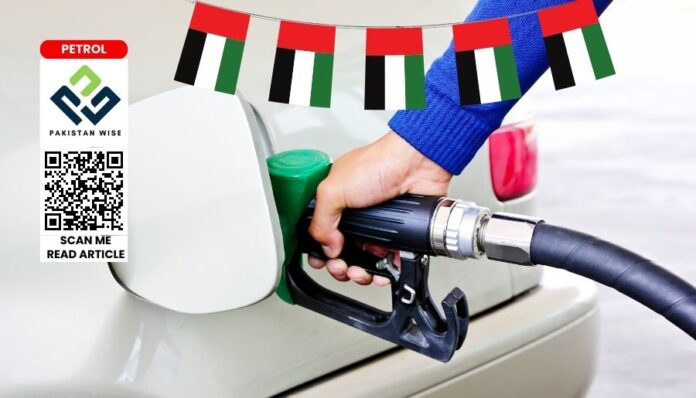The UAE’s recent declaration of a reduction in petrol prices effective December 1, 2023, marks a pivotal shift in the nation’s economic landscape. This strategic adjustment brings forth a notable decline in the cost of Super 98, plummeting from Dhs3.03 per litre to a revised Dhs2.96 per litre. Simultaneously, the price of Special 95 has been recalibrated to Dhs2.85 per litre, down from the previous Dhs2.92 per litre. Moreover, Diesel is set to witness a substantial reduction to Dhs3.19 per litre, marking a significant drop from its preceding price of Dhs3.42 per litre.
Analyzing the year-long trajectory of Super 98 prices throughout 2023 reveals an intriguing pattern, showcasing a rollercoaster of fluctuations. The monthly variations in the UAE’s Super 98 prices are as follows:
| Month | Price (Dhs per litre) |
|---|---|
| January | 2.78 |
| February | 3.05 |
| March | 3.09 |
| April | 3.01 |
| May | 3.16 |
| June | 2.95 |
| July | 3.00 |
| August | 3.14 |
| September | 3.42 |
| October | 3.44 |
| November | 3.03 |
| December | 2.96 |
Related Article: Powering Progress: Al Dhafra Solar Farm and UAE’s Renewable Energy Ambitions
It’s imperative to note that all the aforementioned prices encompass a five percent VAT, which has become an integral component of the fuel pricing structure. This VAT addition has remained consistent since its implementation.
The groundbreaking transition in the UAE’s fuel pricing mechanism took root in August 2015 when the Ministry of Energy decisively embraced a pricing model predicated on global price averages. This paradigm shift effectively supplanted the erstwhile government subsidy system, which previously shielded consumers from the volatility of global petrol expenses.
The implementation of a pricing model tethered to global benchmarks signaled the government’s concerted effort to align fuel prices more closely with international market fluctuations. This strategic pivot, moving away from government subsidies, aimed to foster an economic environment that responded dynamically to global shifts, promoting efficiency and adaptability within the UAE’s energy sector.
By tethering domestic fuel prices to global averages, the UAE’s Ministry of Energy embarked on a trajectory aimed at instilling market-driven dynamics within the local fuel economy. This departure from subsidy-driven pricing fostered a more transparent and responsive pricing mechanism, ensuring that consumers directly experienced the ebb and flow of global fuel prices.
The proactive shift from a subsidized pricing framework to a globally indexed model underscored the government’s commitment to fostering an economically robust and adaptable fuel pricing structure. This transition marked a transformative juncture in the UAE’s economic strategy, prioritizing market dynamics and global parity in fuel pricing.
In conclusion, the recent reduction in petrol prices in the UAE stands as a testament to the nation’s adeptness in adapting its economic strategies. The comprehensive analysis of the fluctuating Super 98 prices throughout 2023, coupled with the transition from a subsidy-driven to a globally indexed pricing model, illuminates the UAE’s commitment to embracing market-driven economic paradigms.

